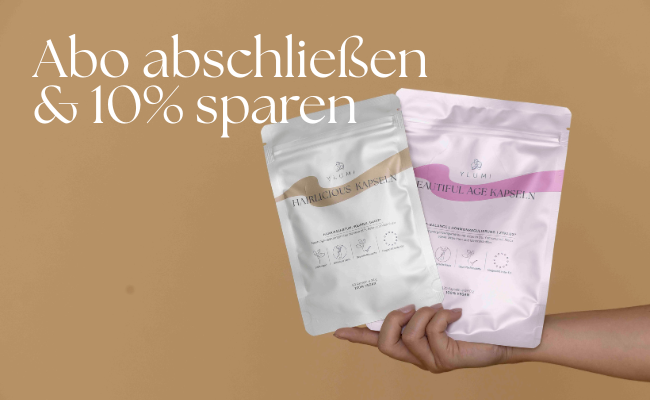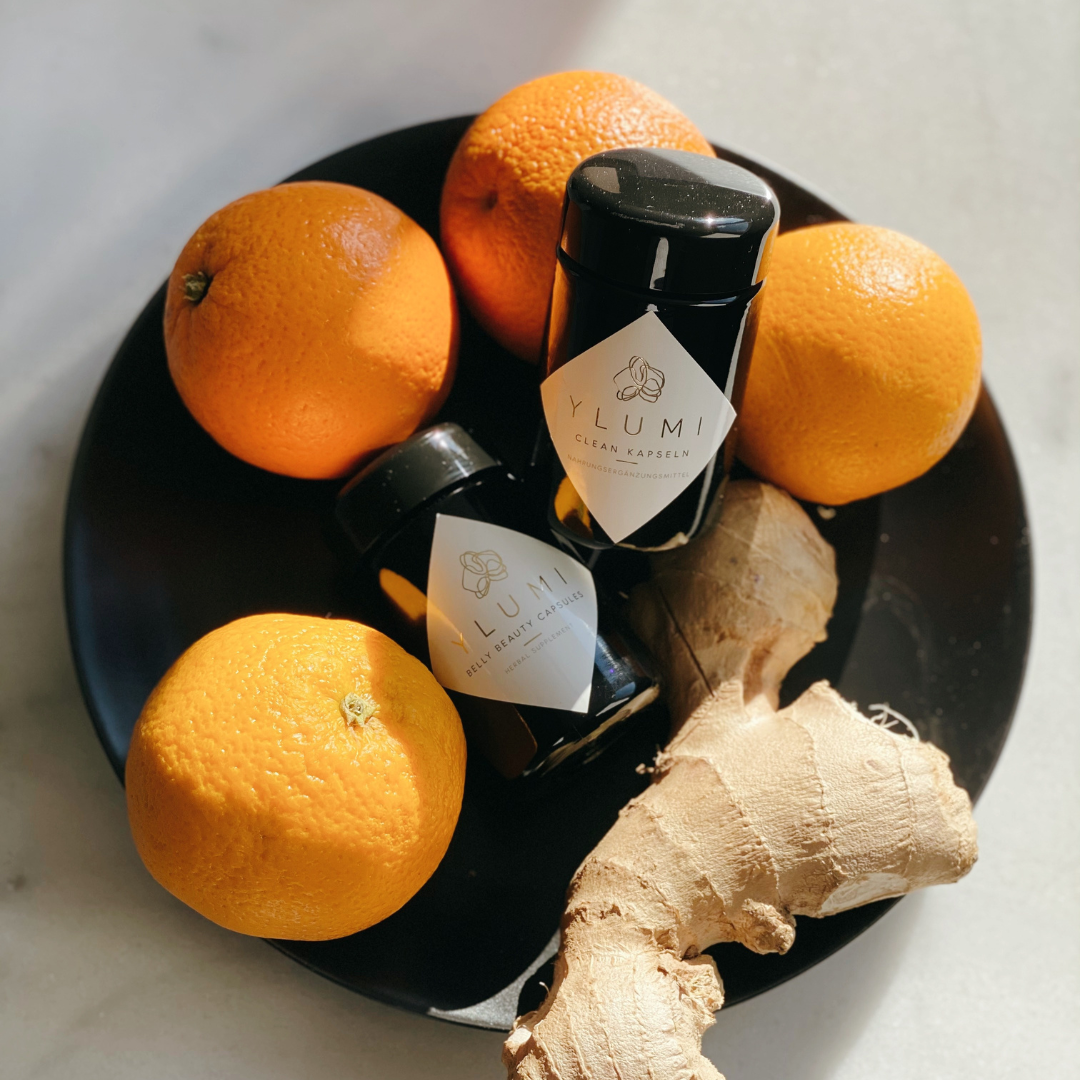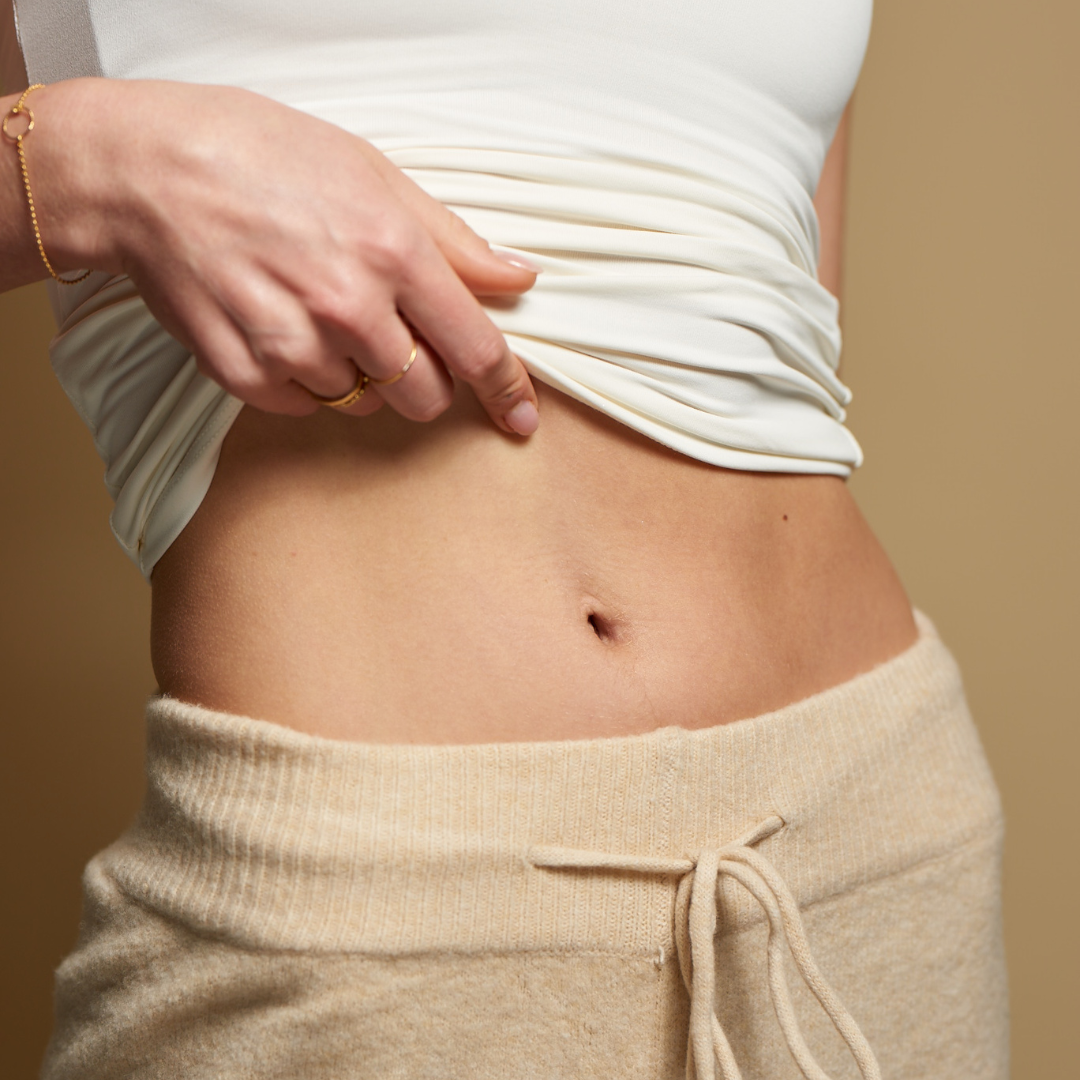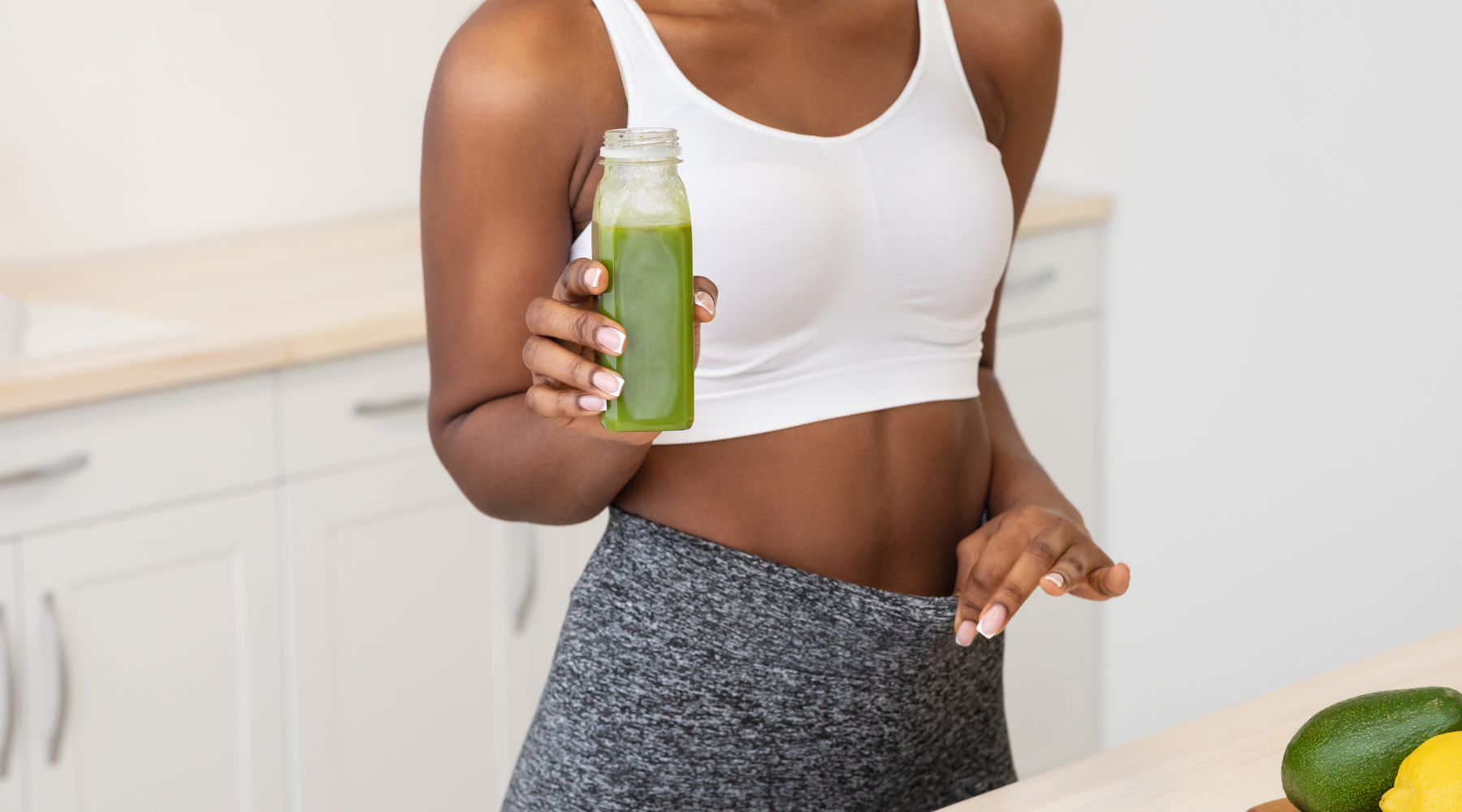
5 STEPS FOR INTESTINAL REHABILITATION
The gut is the center and origin of our health. Many diseases can be traced back to an unhealthy gut. When you consider that 80% of our immune system is located in the gut, it becomes clear that an incredibly sophisticated system lies behind it.
If the gut isn't functioning properly, it can quickly have a negative impact on our overall well-being and health. Since our gut is such a complex system with trillions of bacteria, we should give it the attention it deserves. There are some cases in which intestinal cleansing makes sense.
We'll explain exactly how you can do this in this blog post. We'll answer the following questions:
- What is the difference between colon rehabilitation and colon cleansing?
- When can colon cleansing be beneficial (and when should you avoid it)?
- How to get your gut in shape in 5 easy steps.
Table of Contents
- What is colon cleansing?
- When is colon cleansing advisable? (And when is it not?)
- Benefits of intestinal cleansing
- Side effects of intestinal cleansing
- How does colon cleansing work?
- Preparation for intestinal cleansing
- Instructions for intestinal cleansing – 5 steps
- Step 1: Perform a colon cleanse
- Step 2: Adjust your diet
- Liver-supporting foods
- Step 3: Integrate exercise and massages into your daily routine
- Step 4: Establish a healthy drinking plan
- Step 5: Complete intestinal cleansing
- Colon cleansing during pregnancy and breastfeeding?
- The perfect accompaniment for intestinal cleansing
What is colon cleansing?
The goal of intestinal cleansing is to restore balance to the intestinal flora, with its complex bacterial system, thus balancing digestion and improving overall well-being. The focus is on detoxifying the colon and rebuilding the intestinal flora. Intestinal cleansing involves a combination of several measures, such as colon cleansing, proper nutrition, massages, and exercise.
The difference between colon rehabilitation and colon cleansing
The terms intestinal rehabilitation and intestinal cleansing are often used synonymously, although they are two different treatments.
Colon cleansing is a long-term, holistic approach to healing the gut. Colon cleansing is often referred to as a naturopathic treatment that encompasses several phases and measures.
Colon cleansing, on the other hand, refers to different methods for complete bowel emptying through laxatives (e.g. with castor oil, an enema or Glauber's salt). In many cases, colon cleansing is carried out as the first step in colon rehabilitation.
How long does colon cleansing take?
There is no set duration for intestinal cleansing, as the duration is determined individually depending on the degree of damage and symptoms.
You can feel the first positive effects of intestinal cleansing after just two weeks. However, since this involves the long-term rebuilding of the intestinal microbiome, a duration of at least two months is recommended, as a sustainable rebuilding of the intestinal flora with long-term effects requires patience.
When is colon cleansing advisable? (And when is it not?)
First of all, intestinal cleansing is not a recognized form of therapy from a conventional medical perspective. However, health specialists agree: a healthy intestine is crucial for our overall well-being and health. Nevertheless, the general rule is: always discuss any planned treatments with your doctor to rule out potential negative consequences (such as interactions, etc.).
Colon cleansing can be beneficial in many cases, but it is not recommended if you are taking antibiotics .
Although taking probiotics during this time can be beneficial , colon cleansing (one of the first steps in the colon cleansing process) can do more harm than good, as it may make medication less effective.
So when would colon cleansing make sense?
If you suffer from classic intestinal complaints such as bloating, indigestion, bloating, or constipation, intestinal cleansing may be beneficial. However, the symptoms of an imbalanced intestinal flora are often unclear.
Therefore, you should also pay attention to the following complaints...
Weak immune system
While years ago the intestine was considered a purely digestive system, we now know that intestinal health has a significant influence on our entire organism.
Research confirms that a healthy intestinal flora with good intestinal bacteria is not only a prerequisite for a functioning digestion, but above all has a major influence on the immune system.
So if you are constantly ill, often feel unwell and feel like your immune system needs support, intestinal cleansing may be beneficial.
Skin diseases
According to dermatologists, skin health is also significantly influenced by the gastrointestinal system . This connection can be explained as follows: Stress and the consumption of processed foods lead to a slowing of digestion, which can promote the proliferation of harmful bacteria in the gut.
In addition, the intestinal wall becomes increasingly permeable (leaky gut syndrome). The resulting bacteria can then penetrate the intestinal wall more quickly into the body, causing systemic inflammation—that is, a low-level inflammation that cannot be localized.
This causes nonspecific symptoms such as skin blemishes or rashes. In this case, intestinal cleansing can provide relief.
Internal imbalance
Sayings like "listen to your gut feeling" or "that upsets my stomach" are by no means coincidental.
As many researchers around the world have discovered, our intestinal flora influences what we think and feel .
So, if you feel unbalanced and upset, an imbalance in your gut may be the cause. In this case, too, intestinal cleansing is beneficial.

Benefits of intestinal cleansing
We should all pay much more attention to our intestines, because intestinal cleansing brings with it many benefits:
- Regeneration and healing of the intestinal mucosa
- Reduction of inflammatory processes
- Regulation of the intestinal flora
- Strengthening the immune system
- Activation or calming of the intestines
- Relief of the liver and kidneys
- Elimination of harmful bacteria and fungi
- Elimination of toxins and metabolic waste products
Side effects of intestinal cleansing
Nevertheless, intestinal cleansing can also have disadvantages. Side effects can occur, especially in the initial period.
- Headache
- Impure skin
- Digestive problems
In any case, it's worth sticking with it. These side effects are usually detoxification reactions of the body and a sign that the intestinal cleansing is working.
How does colon cleansing work?
During a colon cleanse, you bring your intestinal flora back into balance through various measures. These 5 steps are essential.
Preparation for intestinal cleansing
Before a colon cleanse, it's recommended to avoid highly processed foods, alcohol, and nicotine for a few days beforehand. These only place unnecessary strain on the intestines. By eliminating them before the colon cleanse, you support your body and gently prepare it for the coming period.
Instructions for intestinal cleansing – 5 steps
Step 1: Perform a colon cleanse
This step involves completely emptying the bowel. Colon cleansing is the perfect start to a colon cleansing program because it flushes out everything unnecessary from the intestines—a mini reset, so to speak.
You can cleanse your bowels either with a laxative like Glauber's salt. You can buy this salt at any health food store. It takes a bit of courage to drink the 500 ml of the water-Glauber's salt mixture all at once. Alternatively, or as a supplement, you can also empty your bowels with an enema from a pharmacy.
You could also use home remedies for this. Foods like healing clay, psyllium husks, or flaxseed have cleansing effects. Dissolved in water, soaked, or added to muesli, they regulate intestinal activity and can thus further support the detoxification process.
Step 2: Adjust your diet
During a colon cleanse, you should eat as balanced a diet as possible. The alkaline diet, which we have already covered in detail here , is recommended . This diet is based on plenty of fresh vegetables, fruit, whole grains, legumes, and healthy fats.
In this way, you supply your intestines with plenty of prebiotics, i.e. fiber that supports your digestion.
You can also take probiotics to support your intestinal cleansing. Our Belly Beauty Capsules are ideal for this, as they contain a high-quality probiotic strain of 15 tested viable lactic acid bacteria. Alternatively, you can also consume probiotics in the form of fermented foods such as sauerkraut or kombucha.
Foods you should eat during a colon cleansing include:
- Oatmeal,
- Vegetables,
- Fruit,
- Leaf salads,
- Sauerkraut,
- brown rice,
- potatoes and
- low-fat dairy products (in moderation).
Foods that you should avoid during a colon cleansing are
- Cheese with high fat content,
- Sausage,
- Meat,
- Highly processed foods,
- Sweets,
- Alcohol and
- Caffeine.
Liver-supporting foods
The liver is the main organ in our body that removes toxins and is therefore even more challenged during intestinal cleansing.
That's why it's definitely a good idea to give your liver additional support during a colon cleanse. It's crucial that you consume the right bitter substances.
You can find these in many salads and vegetables, or in the form of plant extracts such as dandelion root extract, milk thistle extract, or artichoke extract.
Our CLEAN capsules are especially well-suited for supporting your liver. They contain carefully selected ingredients, such as Rhodiola Rosea, Moringa, Turmeric, Agaricus Blazei Murill, Chlorella, and Milk Thistle, thus promoting your liver health and vitality.
Step 3: Integrate exercise and massages into your daily routine
Exercise and sport should be part of your daily routine during a colon cleansing program. These stimulate intestinal peristalsis, or bowel movement, and thus support the process.
Gentle abdominal massages are also beneficial at this time. One form of self-massage, for example, is circling your hand clockwise over your lower abdomen.
- To do this, lie flat on your back.
- Place your hand on your stomach and apply light pressure.
- Then stroke clockwise around your belly button.
- If you feel any blockages, you can increase the pressure at those points.
Brush massages help eliminate toxins by stimulating the lymphatic system.
- Always start brushing at the ankles and work upwards.
- Gently stroke the brush over your shins and thighs.
- Attention: Always stroke towards the heart – on the legs, only from bottom to top.
- On your knees, you can move the brush around clockwise a few times.
Step 4: Establish a healthy drinking plan
A tip you've probably heard a thousand times: Drink plenty of water!
During intestinal cleansing, a drinking plan is particularly important because sufficient fluid intake facilitates digestion and supports the elimination of toxins.
You should consume an average of 30 to 40 ml of water per kilogram of body weight daily. However, if you're physically active that day or sweat a lot in hot weather, this value will increase.
You should also slightly increase your fluid intake during a colon cleanse (step 2 of the colon cleansing process). Your body loses a lot of fluids and minerals during the process, which can lead to dehydration if you don't drink enough.
But even though we all know how important it is to drink enough fluids, we often forget to drink enough water in the hustle and bustle of everyday life.
To ensure that you drink enough water, you can use this drinking plan (and adapt it for yourself):

Step 5: Complete intestinal cleansing
After the intestinal cleansing is complete, you should definitely not immediately resort to junk food again. If you want to maintain a healthy gut in the long term, you should continue to pay attention to your diet.
Make sure you continue to eat a balanced diet, eat 5 portions of fruit and vegetables daily, prefer whole grain products, and eat meat no more than 2-3 times per week.
Colon cleansing during pregnancy and breastfeeding?
Colon cleansing triggers detoxification processes that can be very stressful for the body.
During pregnancy, a woman's body should be able to devote all its energy to the baby. There's also the possibility that toxins may be released into other parts of the body (for example, the placenta), which can negatively impact the development of the unborn child.
Therefore, intestinal cleansing is not recommended during pregnancy or breastfeeding. However, there are some great ways to do something good for your intestines even during these exciting times. How about, for example, a gut-friendly porridge in the morning.
The perfect accompaniment for intestinal cleansing
Our Belly Beauty Capsules are a wonderful complement to intestinal cleansing. They provide additional support for your digestion, maintain healthy intestinal flora, and strengthen your immune system from within.
As mentioned above, the CLEAN CAPSULES are also a wonderful way to relieve your liver during a colon cleansing.
And if you want to kill two birds with one stone: With the YLUMI DARMKUR ( Intestinal Cleanse) , we want to give you the opportunity to reset your body with the CLEAN CAPSULES and simultaneously support your intestinal flora and digestion with the BELLY BEAUTY CAPSULES. This way, you not only get your intestines back on track, but your entire organism.








